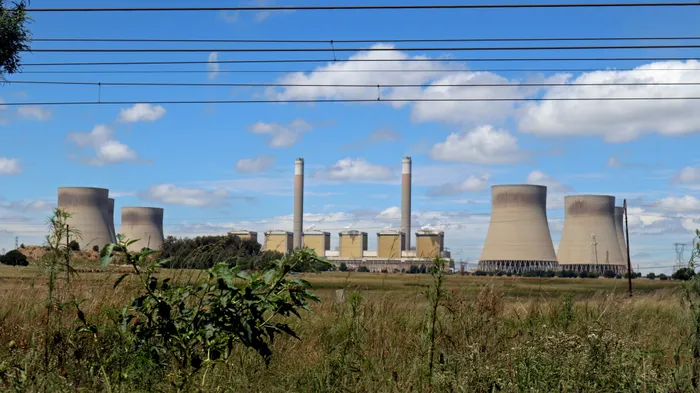As SA faces darkness again Eskom plans to buy spares from OEMs to up its game

Eskom Kendal power station in Mpumalanga. Picture: Timothy Bernard/African News Agency(ANA)
As South Africans face increased levels of load shedding this week there is hope on the horizon after Eskom assured the public that it would soon be buying all the spares required to fix its frequently breaking down coal-fired power plants from Original Equipment Manufacturers (OEMs) in a bid to improve its plant performance.
Stage 6 is now expected on Saturday and Sunday.
Eskom’s general manager for engineering, Thomas Conradie, yesterday said the power utility was busy investing in technologies and improving a process of better control of spares, from the receiving to storage, and inventory management.
The struggling power utility has previously been accused of corruption in the procurement of quality spares at the right time and the right price in some of its power stations.
Inefficiencies in spare parts management in power stations have great repercussions for the execution of maintenance, resulting in poor plant performance and load shedding.
“I think we have allowed ourselves to become ill disciplined in terms of utilising spares and not necessarily accounting for it accurately,” Conradie said.
“It’s not necessary to say that it relates to corrupt activities. Yes, we have had cases where corruption has resulted in collusion in spares indicated as delivered but not delivered, and giving a false sense of spares availability.”
Conradie said that Eskom had seen in the past that its supply chain management was hampered in that suppliers who won tenders for supplying spares would, for whatever reason, either be late in delivering spares or withdraw when it is getting closer to the delivery date, forcing Eskom to start afresh with the procurement process.
“We are certainly now much more moving towards utilising the OEMs of spares and go to that supplier directly in terms of providing those spares,” he said.
“Where it is a spare that can be easily procured from multiple sources, then we approach the open market. But where we don’t have value-adding intermediaries, we avoid those and we go directly to the ones that manufacture spares.”
Conradie was speaking yesterday during a webinar hosted by EE Business Intelligence on OEMs’ role in improving the performance of Eskom coal-fired power stations.
In February, National Treasury appointed the German VGBE Energy Consortium to assess and investigate the operations of Eskom’s coal fleet.
The assessment is due to be concluded at the end of this month.
Treasury said that the outcome of the assessment will consider putting in place a concession model which could see OEMs brought in to turn around and improve the energy availability factor and performance of Eskom coal-fired power plants.
Silas Zimu, a special advisor to the Minister of Electricity, said they were of the view that Eskom definitely needed to review its current operating model and allow more leeway to OEMs.
“Eskom, where they have been given the task of doing things themselves, they have not delivered those things on time. They have not brought us any savings, they have actually cost us more,” Zimu said.
“I think that is where the Treasury was coming from. But the Treasury is not technical. A good example is the incentive that they put for solar, excluding inverters and batteries, they are just solar panels, and that thing is not moving.
“To me, all these power stations that have been built where Eskom has been a contract manager, OEMs have been suppliers and EPCs [engineer, procure, and construct] and in some instances there would be OMS [Occurrence Management System] for some time until they hand over, so private participation has always been there and maybe that’s the model we have to go back to.”
John Thompson, a division of ACTOM, a major supplier of electrical equipment, is one of Eskom’s OEMs which has been providing services in boilers, environmental solutions, engineering, energy management, manufacturing, spares, maintenance and training for the power utility.
John Thompson’s regional engineering manager, Ewert Snyman, said they were working tirelessly with Eskom to resolve the load shedding crisis and believed that industry would be able to weather the storm.
“Current maintenance contracts are limited in scope because they are focussing on a single system or process. Eskom contracts are measured on maintenance activity performance such as the number of welds, and not on performance of the entire plant,” Snyman said.
“Contracts should include more of the boiler auxiliary equipment. Eskom must find a way to obtain required spares on time because materials are not always available for maintenance services. Availability may delay return to service of units and the quantities available may also result in delays in returning plants to service.”
BUSINESS REPORT